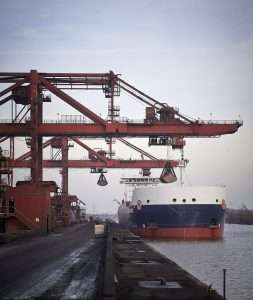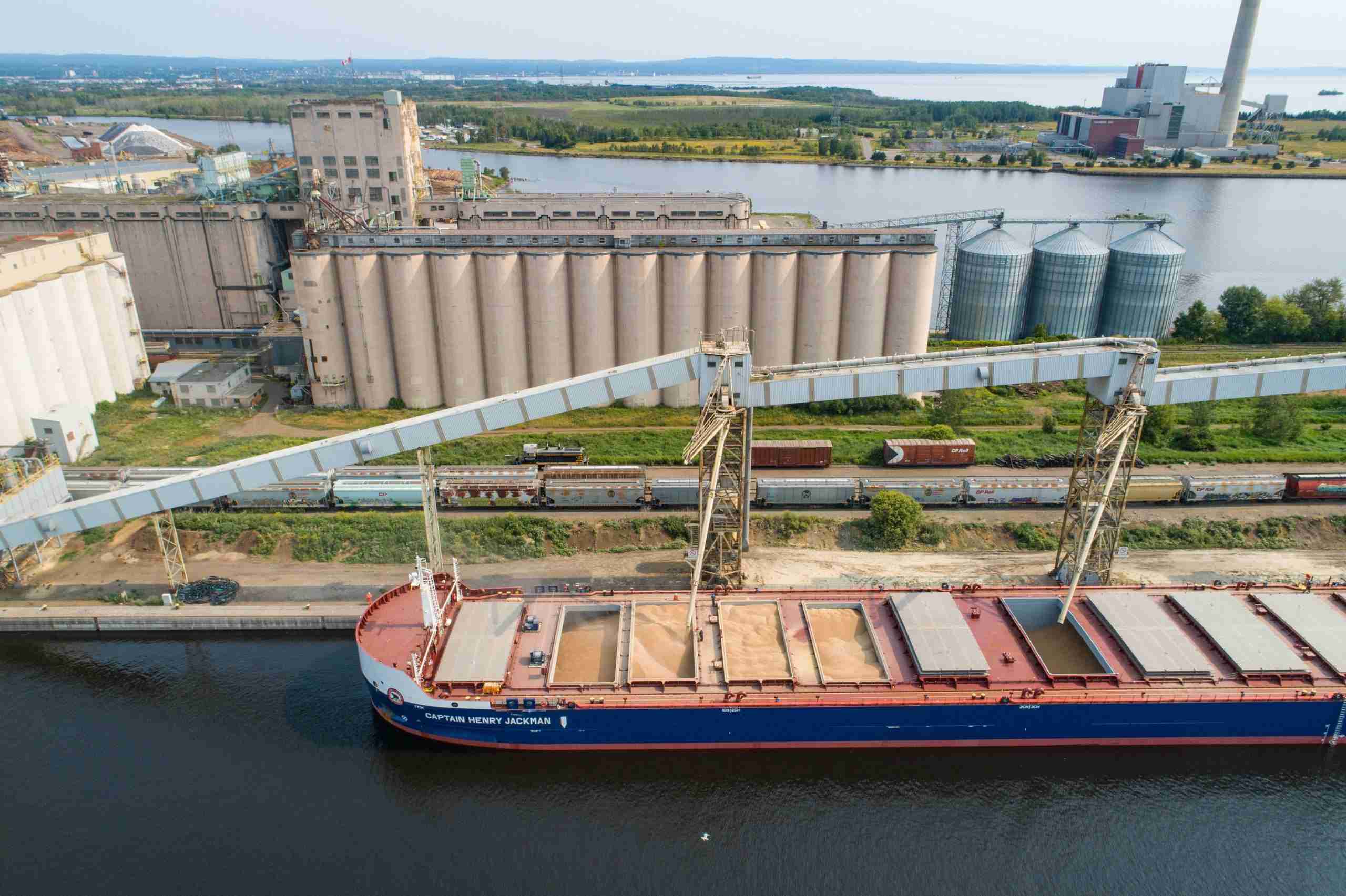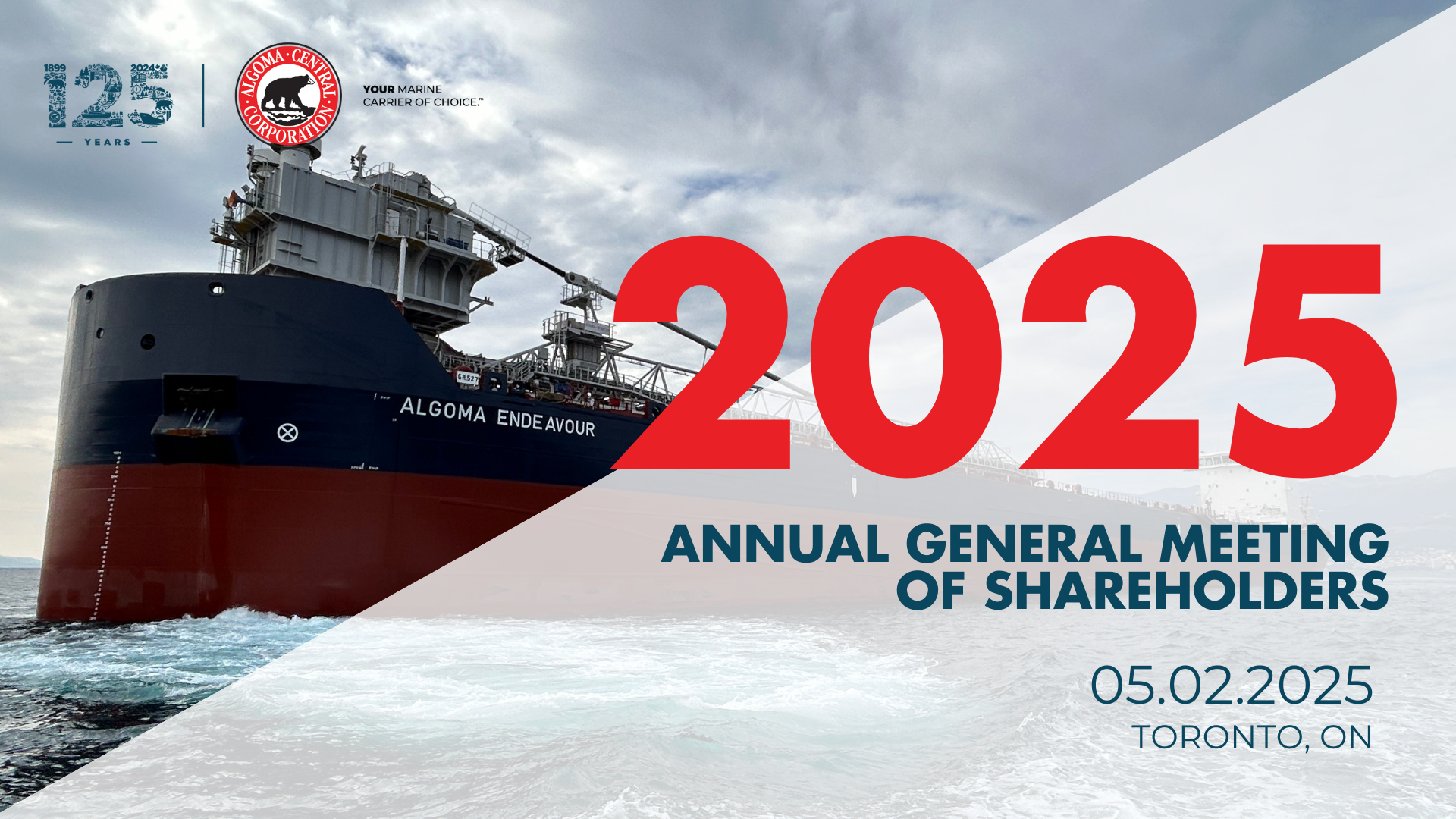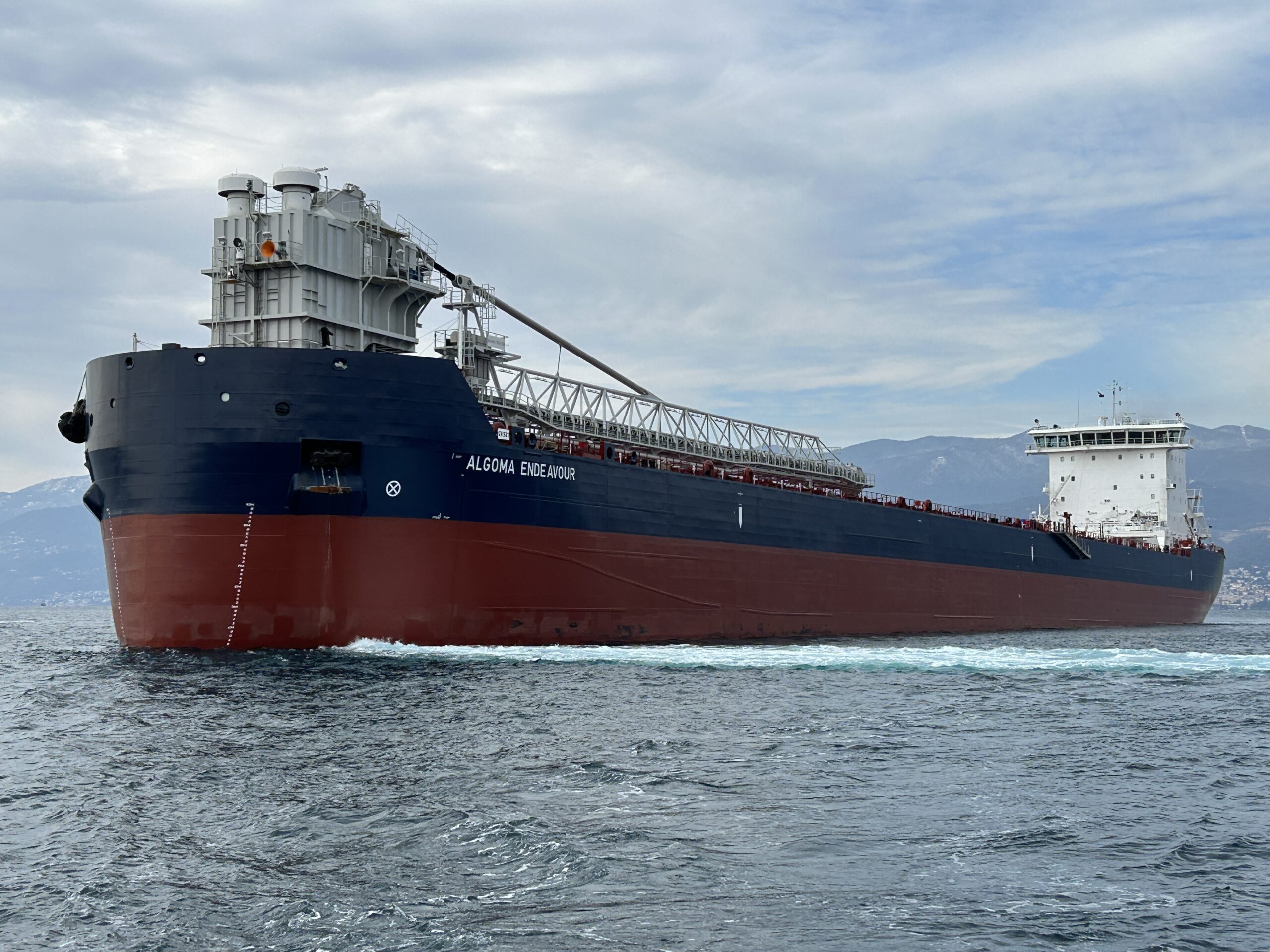When was the last time you encountered a ship, but not just any ship, a Laker? Maybe you saw one floating by while having an ice cream on a pier? Or maybe you were stopped at a bridge on your way to work? Ships are all around us but those encounters typically end once you finish that cone or cross that bridge. Despite the vastness of North America’s water-based economy, it often escapes the notice of the public. We don’t blame you. How could we expect you to know about us? After all, you’ve probably never been stuck behind a ship on the highway or used one to move across town. What most people may not realize is that the marine sector plays a pivotal role as the most sustainable and effective transportation system, that also seamlessly connects our railway and trucking networks. U.S. states and Canadian provinces surrounding the Great Lakes basically constitute an economic entity of their own as it accounts for over 50% of all U.S./Canadian bilateral border trade and facilitates the annual shipment of more than 200 million tons of cargo! If it were an independent country, its GDP would surpass $6 trillion, making it the third-largest economy globally!

So, what exactly do these bulk carriers transport? Unlike what you may have seen in movies or T.V., we’re not freighters transporting containers filled with Amazon packages or Wayfair furniture. Instead, we carry iron ore mined in Quebec, which is used to manufacture steel. The steel that cars, appliances, nails or screws, office furniture, and much more are made from. So, while we may not carry air-fryers, we play a significant role in its existence!

Another crucial cargo we transport is grain, impacting not only Canadians but the entire world. In 2021, Canada exported $6.91 billion worth of wheat, making us the fourth-largest wheat exporter globally. Wheat was the 12th most exported product in Canada that year. The impact of the war in Ukraine shifted global grain trade patterns, increasing demand for Canadian grain to be shipped east through the Great Lakes to the Mediterranean. The disruption in grain exports from Russia and Ukraine resulted in more than a 50% reduction in direct imports to 30 countries. The wheat we transport is sourced from farms in Manitoba and Saskatchewan, reaching international ports in Italy, the UK, the Middle East, North Africa, South America, and the Caribbean. It’s used to produce bread, pasta, cereal, and snack bars. Corn, another cargo we transport, is used to create an astonishing range of products, including corn flour, biofuel, medication like penicillin, vitamins such as vitamin C, crayons, and yogurt. The flow of cargo, particularly grain, is intertwined with our daily lives in numerous ways. It sustains our food supply, dietary diversity, energy sources, healthcare, and even the production of everyday consumer products. Moreover, it is a driving force behind the global trade dynamics, mitigating both the inflation and pricing of the Canadian goods and services, as well as international markets.

Hopefully, you have now gained a better understanding of how our cargo flow impacts your daily life! It’s often the things we take for granted that we rely on the most. Have you ever wondered where the cement used to build your home comes from and how it gets there? Or the salt used to de-ice roads during snowstorms? And when you fill up your car with gas on your way home from work, have you considered where it comes from and how it reaches you? The cargo we transport forms the backbone of our everyday lives. In 2022, a staggering 135.7 million metric tons of cargo, valued at $33.9 billion, passed through our Great Lakes-Seaway system. In fact, 21.8 million metric tonnes of that cargo were shipped by Algoma vessels in 2022! Marine transportation may be a hidden industry, but it is by no means a small one. So, the next time you find yourself impatiently waiting for one of our ships to pass through a bridge, take a moment to look around your car and wonder if that ship is carrying the cargo you need for your everyday life.




